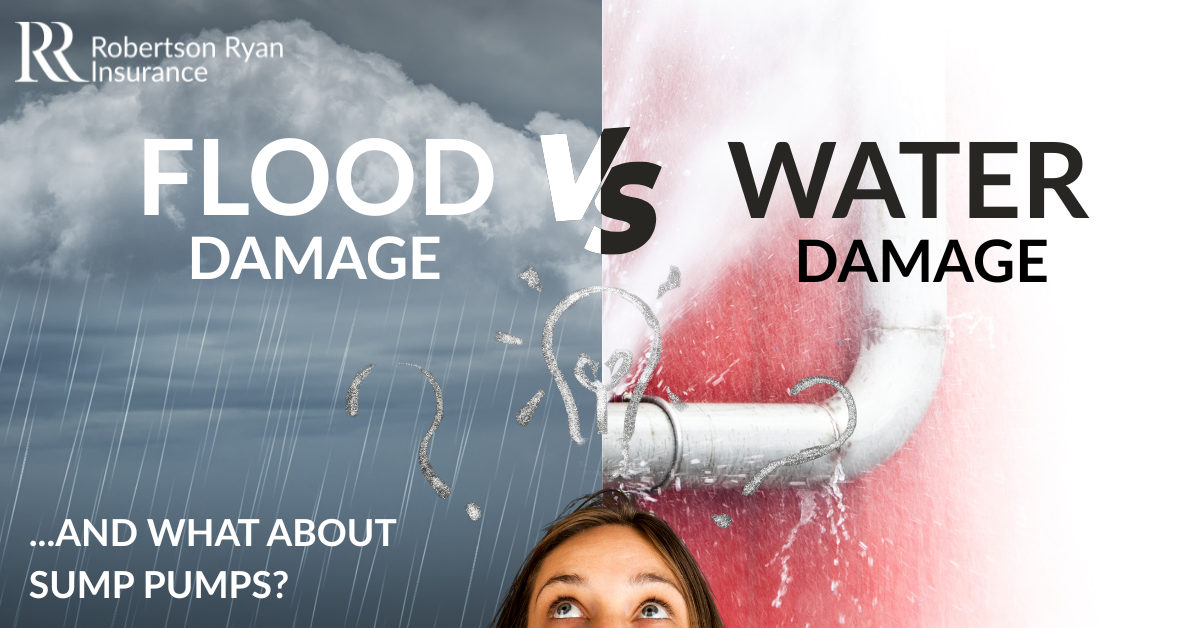Flood Damage vs. Water Damage — And Where Sump Pump Overflows Fit In
August 13, 2025

When water damages your home or business, the cause matters as much as the cleanup. Insurance policies treat flood damage and water damage very differently, and understanding the distinction can help you avoid costly surprises.
Flood Damage
Flood damage occurs when water from outside rises and enters your property, covering normally dry land first. This can come from heavy rain causing streets to flood, rivers or lakes overflowing, storm surge, or even rapid snowmelt.
Flood damage is not covered by a standard homeowners or commercial property policy. You need a separate flood insurance policy for that protection.
Water Damage
Water damage generally refers to sudden, accidental water releases that originate inside your property or from above ground sources. Examples include burst pipes, water heater leaks, overflowing bathtubs, or roof leaks after a storm.
Most property insurance policies cover this type of loss, but exclusions apply. Gradual leaks or neglect typically aren’t covered.
Where Does a Sump Pump Overflow Fall?
A sump pump overflow is considered water damage, because the water comes from within your property’s perimeter (groundwater collected in a sump pit) rather than a floodplain or body of water. But there’s a catch—standard policies don’t automatically cover sump pump overflows.
You typically need a water backup and sump overflow endorsement added to your homeowners or business policy. Without it, you could be responsible for repairs yourself, even if the overflow was caused by heavy rains.
The Bottom Line
- If the water touched the ground outside before entering your home or business, it’s likely flood damage and needs flood insurance.
- If it originated inside—like a pipe break, roof leak, or sump pump overflow—it’s water damage, but may still require special coverage.
Knowing the difference and having the right policies in place can mean the difference between a covered claim and an expensive lesson. Reach out to your Robertson Ryan Insurance Agent or contact us here to help you navigate your coverages and options.
*Please note that we rely on independent sources, and recommend conducting further research or to seek guidance from a qualified industry professional, legal counsel, or licensed insurance agent as appropriate for your needs. These blog posts are intended for general informational purposes only.